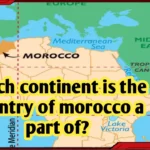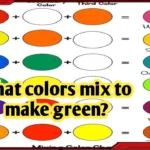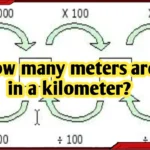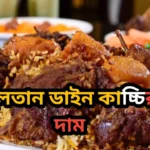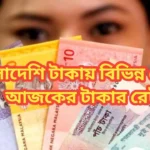Morocco: A Country at the Crossroads
Morocco, located in the northwest corner of Africa, serves as a captivating intersection of diverse cultures and geographical influences. Its strategic location has played a pivotal role in shaping its history and development.
Exploring the African Connection
Amidst the rich tapestry of the African continent, Morocco stands out as a nation with a unique identity. From the vibrant markets of Marrakech to the serene landscapes of the Atlas Mountains, Morocco encapsulates the essence of Africa.
The Iberian Peninsula Influence
With its proximity to the Iberian Peninsula, Morocco has historical ties with Europe. This historical connection has left an indelible mark on Moroccan architecture, language, and traditions.
Morocco’s Unique Cultural Blend
Morocco is a testament to the harmonious coexistence of Arab and Berber cultures. The fusion of these influences is evident in every aspect of Moroccan life, from its language to its art and cuisine.
Geographic Features of Morocco
From the golden dunes of the Sahara Desert to the lush greenery of the Rif Mountains, Morocco boasts a diverse range of landscapes and climates. This geographical variety contributes to the country’s allure for both residents and visitors.
The Strait of Gibraltar: Morocco’s Gateway
The Strait of Gibraltar, separating Morocco from Spain, is a crucial gateway connecting the Atlantic Ocean to the Mediterranean Sea. Morocco’s control over this passage enhances its geopolitical significance.
Morocco’s Continental Affiliation
Now, let’s address the burning question: which continent is the country of Morocco a part of? Geographically, Morocco is situated in North Africa, making it a part of the African continent.
The Maghreb Region Dynamics
Morocco’s geographical location places it within the Maghreb region, along with Tunisia, Algeria, Libya, and Mauritania. The Maghreb holds strategic importance in regional geopolitics.
Historical Significance of Morocco
The history of Morocco is a rich tapestry woven with threads of Berber dynasties, Arab conquests, and European influences. Key historical events have shaped Morocco into the nation it is today.
Morocco’s Economic Landscape
Presently, Morocco boasts a diverse and growing economy. Industries such as agriculture, mining, and tourism contribute significantly to the nation’s economic prosperity.
Tourism in Morocco
Tourists flock to Morocco for its enchanting blend of ancient cities, bustling markets, and breathtaking natural landscapes. The allure of Morocco lies in its vibrant culture and warm hospitality.
Moroccan Cuisine: A Gastronomic Delight
Moroccan cuisine is a delightful fusion of flavors and aromas. From tagines to couscous, the culinary scene reflects the diversity and richness of Moroccan culture.
Education and Innovation in Morocco
Morocco places a strong emphasis on education and innovation. The nation has made significant strides in technology and research, contributing to its overall development.
Social Fabric of Morocco
Community values and traditions form the social fabric of Morocco. Strong familial ties and a sense of communal responsibility are integral to Moroccan society.
Morocco’s Political Landscape
In the contemporary political landscape, Morocco stands as a constitutional monarchy. The nation has made strides in political stability and diplomatic relations.
Sustainable Development Initiatives
Morocco is committed to sustainable development. Initiatives in renewable energy and environmental conservation showcase the nation’s dedication to a greener future.
Infrastructure in Morocco
The country boasts well-developed infrastructure, including transportation networks, communication systems, and essential utilities, contributing to its overall progress.
Morocco’s Diplomatic Relations
Internationally, Morocco engages in diplomatic relations and alliances, fostering collaboration in various fields. The nation plays a pivotal role in regional and global affairs.
The Sahara Question
Addressing the Western Sahara conflict, Morocco has been actively involved in diplomatic efforts to find a resolution. The situation remains complex, with ongoing dialogues for a peaceful resolution.
Frequently Asked Questions
Morocco is indeed located in Africa, specifically in North Africa.
Arabic is the official language, and Berber is also recognized as a national language.
Morocco experiences a diverse climate, ranging from Mediterranean along the coast to arid in the interior.
Yes, the Sahara Desert is a popular tourist destination, offering unique desert experiences.
The Moroccan dirham (MAD) is the official currency.
Morocco has a well-developed transportation system, including buses, trains, and domestic flights.
Conclusion
In conclusion, Morocco’s geographical, cultural, and historical tapestry makes it a captivating destination. From its diverse landscapes to its rich history, Morocco stands as a jewel in North Africa, embracing the influences that have shaped its identity.
